President Raeisi played vital role in global shift towards multipolarity: US analyst
By Alireza Hashemi
President Ebrahim Raeisi was a “transformative leader” whose tenure catalyzed the global transition towards a multipolar world order, hastening the decline of Western dominance, according to an American political analyst.
In an interview with the Press TV website, Max Parry, a New York City-based independent journalist and geopolitical analyst, underscored the late Iranian president’s role in steering the country through a significant historical juncture.
"The late president's legacy will be remembered by posterity as having led Iran through a major turning point in its history and as one of the most important world leaders in the global shift towards a multipolar distribution of power," Parry stated.
Parry noted that President Raeisi's tenure as the Iranian president was characterized by his unwavering leadership during a period of great uncertainty for the country.
He took office at a time when the nation's future hung in the balance, grappling with the repercussions of prolonged sanctions and economic warfare led by the West
Despite these challenges, the American analyst noted, Raeisi remained committed to reviving the nuclear accord that the US under Donald Trump unilaterally abandoned in 2018, insisting that Iran would not make additional concessions.
"Raeisi campaigned, stating his intention to revive the nuclear accord but not without stipulating that Tehran would make no further concessions at the negotiating table since it was Washington that reneged on the agreement. On this, he was steadfast to the end," Parry emphasized.
Raeisi's strategic approach to overcoming Iran's challenges involved embracing multipolarity and fostering partnerships with nations across the Global South, many of which had also faced threats of “regime change.”
“He found that the solution to challenges Iran faced was to embrace multipolarity and partner with other nations throughout the Global South that have been targeted for “regime change” in a program of international solidarity and multilateralism,” Parry noted.
By strengthening ties with countries such as Russia and China through economic integration based on mutual cooperation and benefit, President Raeisi laid the groundwork for Iran's eventual economic resurgence despite Western sanctions.
The strengthening relations with Moscow further bolstered Iran's stability and national security, according to Parry.
A landmark event during Raeisi's presidency was Iran's accession to the BRICS economic alliance, which aligned Tehran with a coalition of nations committed to reducing reliance on the US dollar as the dominant reserve currency.
“One of the most important events during his tenure was Iran's move to join the BRICS economic alliance earlier this year, which linked Tehran with a host of nations in a global drive to reduce dependency on the US dollar as the dominant reserve currency,” he remarked.
“As de-dollarization drive increases, Washington's ability to impose sanctions on non-compliant nations like Iran will become ultimately ineffective.”
Under President Raeisi's leadership, he hastened to add, Iran played a crucial role in the decline of Western hegemony and the emergence of a multipolar international system.
“Under Raeisi, Iran ensured the decline of Western zero-sum dominance and years from now, he will be looked back on as one of the key figures who presided over the historic moment when the world order transitioned toward a multipolar international system and away from American primacy,” Parry said.
While presidents of China and Russia may have captured the world's attention with their symbolic embrace, Parry said President Raeisi's contributions were equally vital to the geopolitical transformations underway.
“Many would argue that President Raeisi played just as essential a role in the changes we see taking place geopolitically.”
Araghchi briefs foreign ministers of Turkey, Egypt and S. Arabia on US talks
JD Vance’s Caucasus trip deepens concerns over sovereignty, security and US meddling
VIDEO | Press TV's news headlines
Thousands rally in Australia against Israeli president's visit as police use pepper spray
Child among four killed as Israel attacks southern Lebanon in ceasefire breach
Russia vows ‘all possible assistance’ to Cuba as US squeezes oil supplies
Hezbollah leader: Israel‑US aggression is Lebanon’s main challenge
Muslim nations condemn Israel’s new West Bank settlement laws


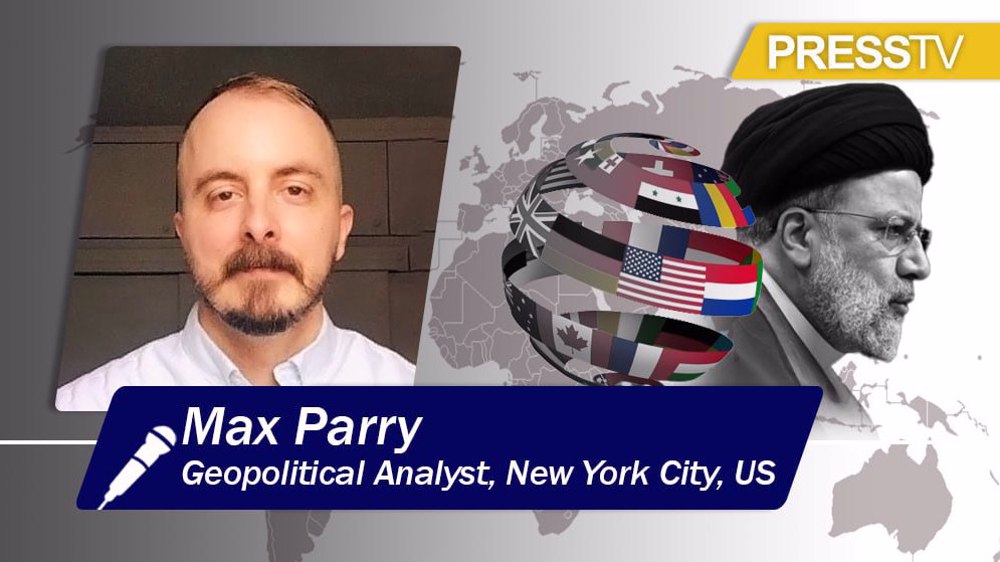
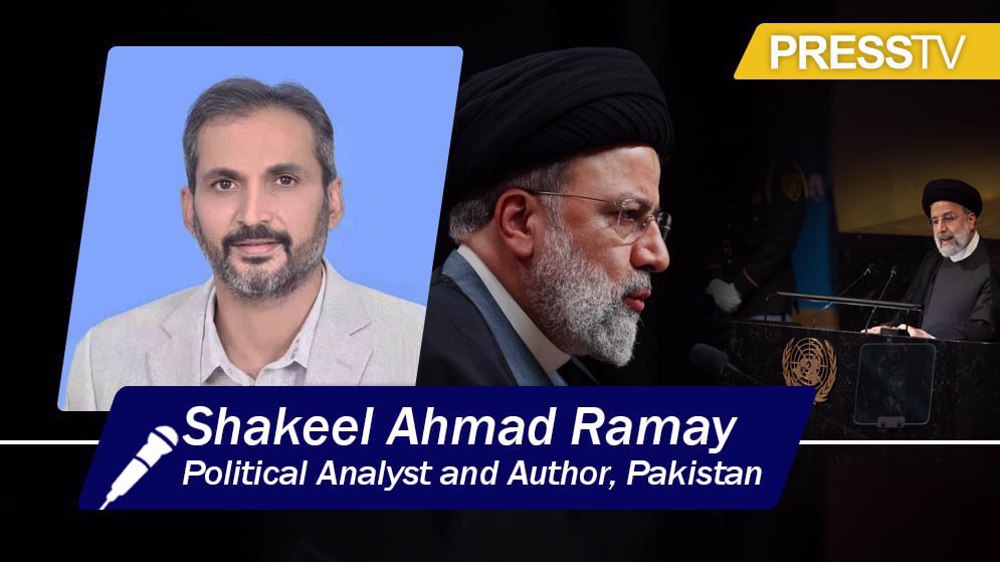
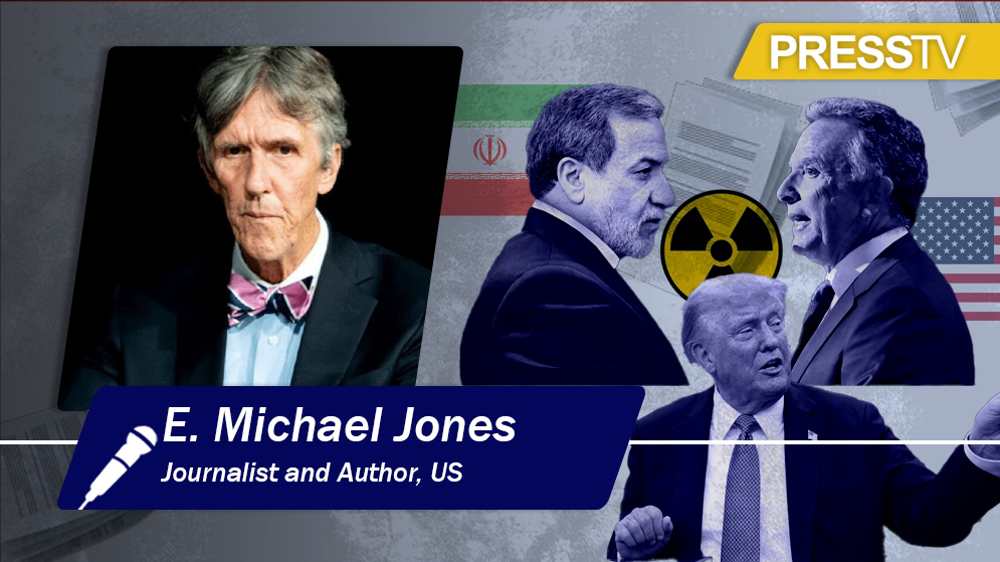
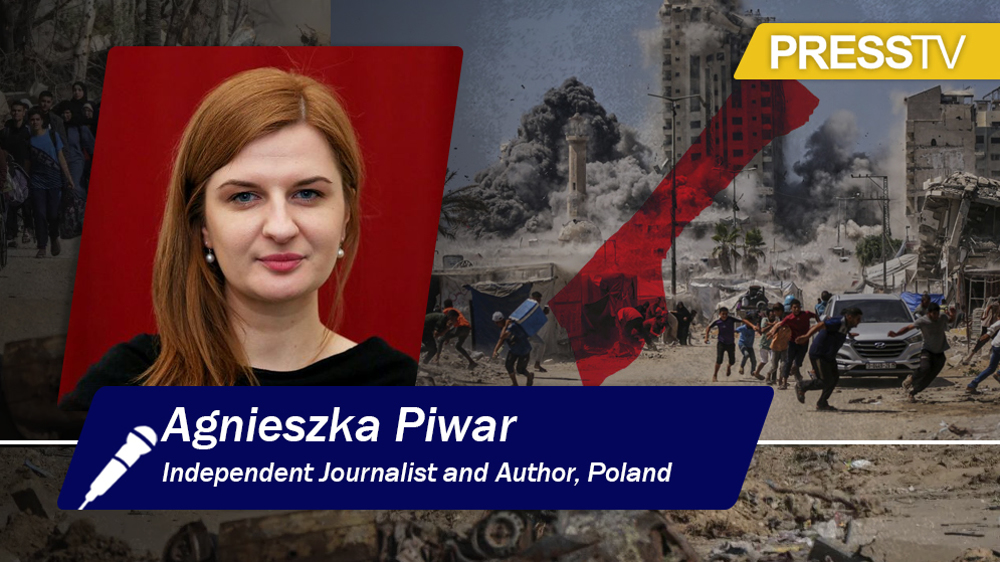
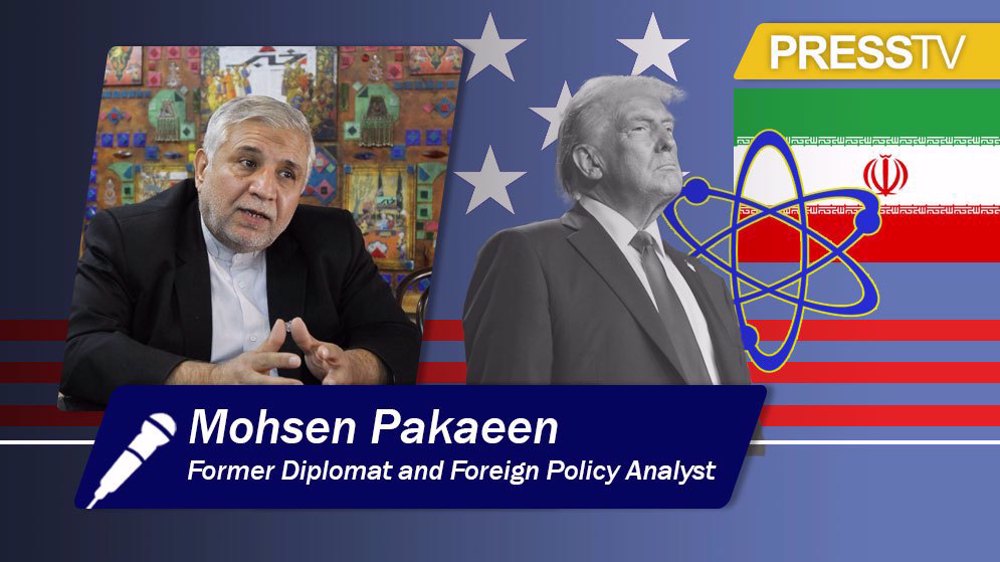



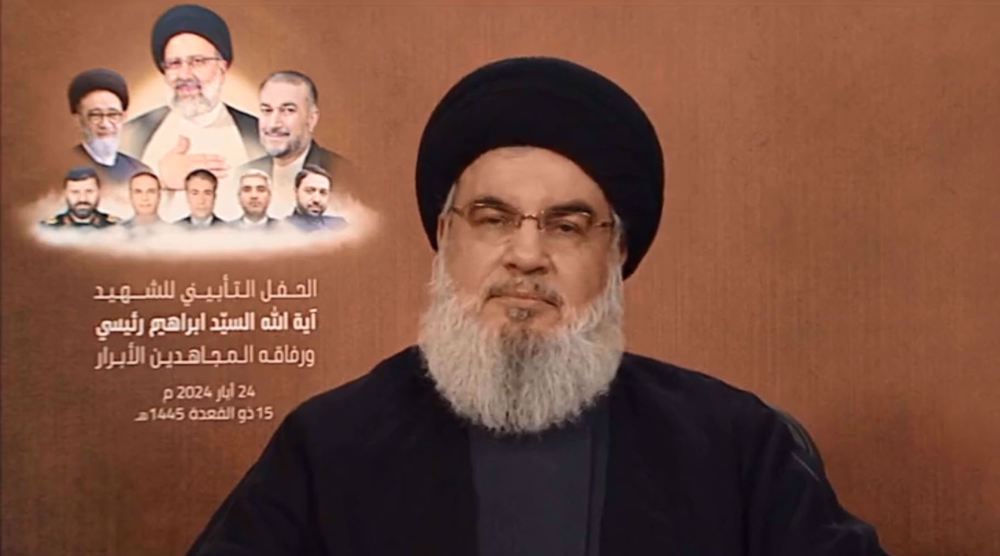
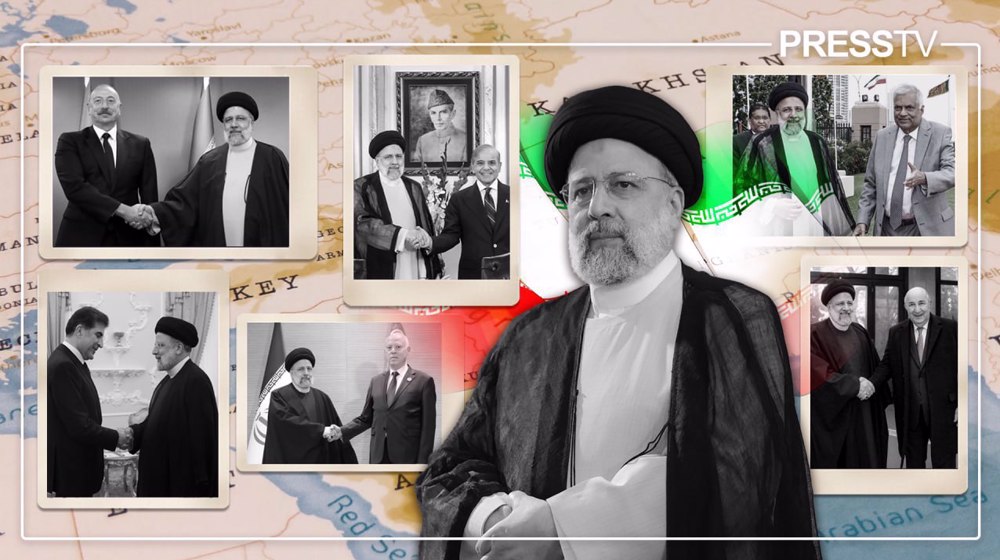
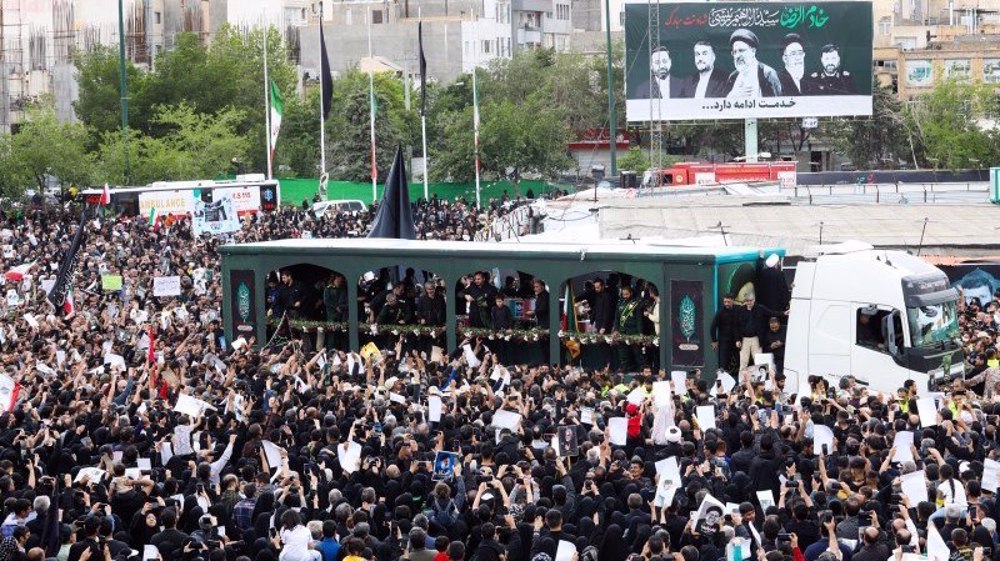
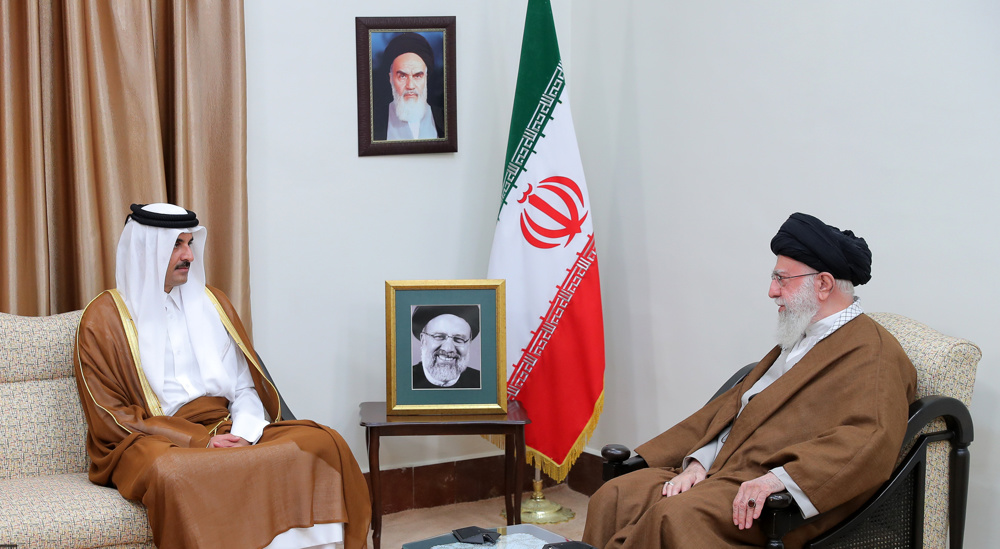
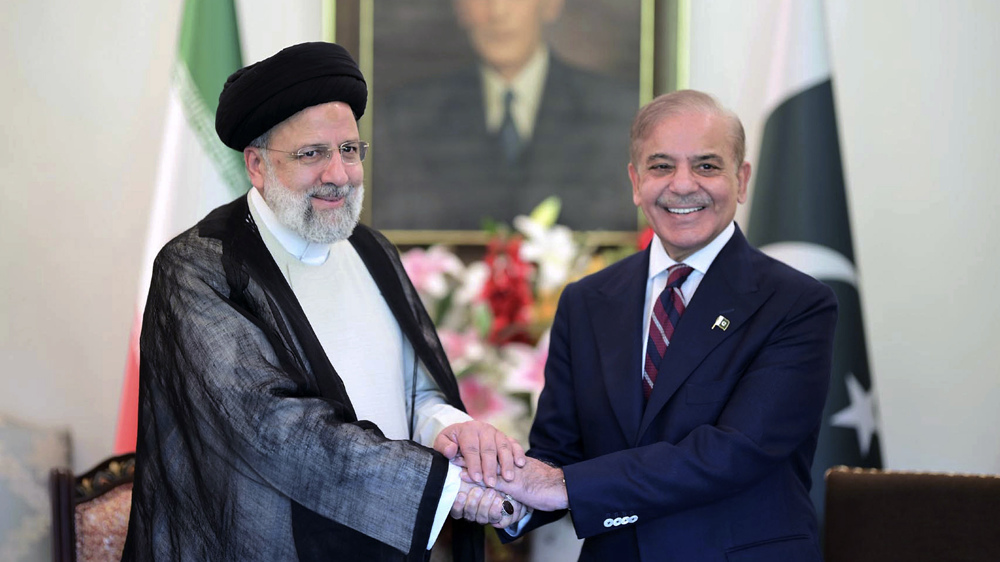

 This makes it easy to access the Press TV website
This makes it easy to access the Press TV website